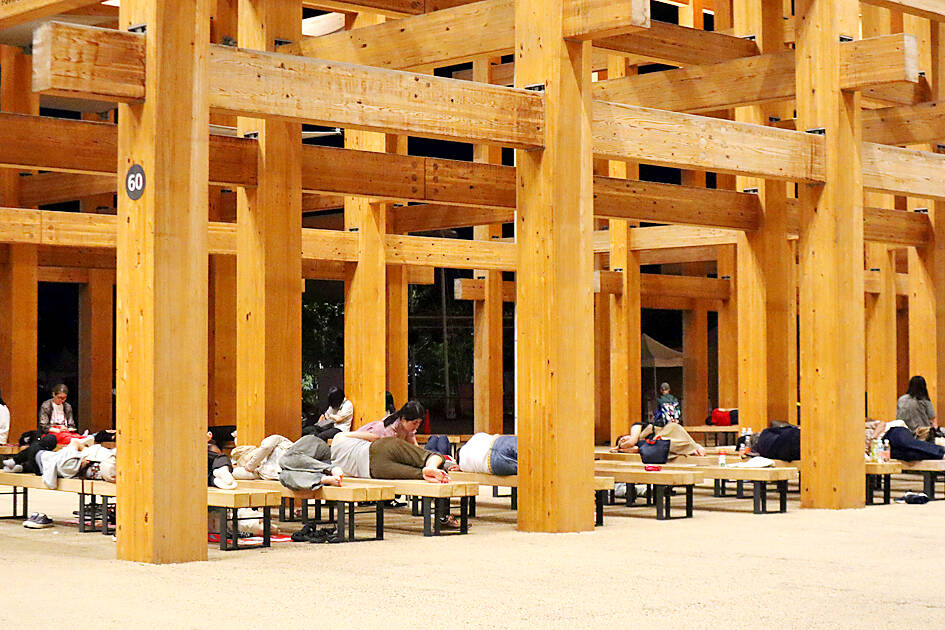Japan yesterday brought down the curtain on the six-month World Expo, having surmounted initially tepid public enthusiasm, contaminated fountains and swarms of pesky flies to welcome more than 27 million visitors.
Expo 2025’s star attraction, the Grand Ring — the world’s largest wooden structure, surrounding all the country pavilions — has proven such a hit that a high-school student has even launched a petition to save it.
Currently, the plan is for a 200m section of the ring, the work of renowned Japanese architect Sou Fujimoto, to be preserved on an artificial island in host city Osaka, but the nearly 7,000 petitioners say they want it saved in its entirety.

Photo: EPA / Jiji Press
“At the moment I stepped onto the ring, something inside me changed,” the Osaka student who began the campaign said, writing on the online petition Web site. “Standing beneath the 20m-high wooden roof, I felt the warmth of the wood seep through my entire body, filling me with an indescribable emotion.”
Japan had feared scant media and public interest would make the Expo a flop, but organizers said the event — which involved about 160 nations and regions showcasing their technology, culture and food — would likely turn a profit of at least ¥23 billion (US$151 million), thanks in part to strong ticket sales.
The highlights included a Mars meteorite, a beating artificial heart grown from stem cells and Hello Kitty figures in the form of algae.
It was a heartening turnaround for the initially embattled exhibition, which is held in a new city every five years.
The Osaka event faced complaints that clouds of midges were swarming the venue and that its Water Plaza had been contaminated with legionella bacteria, and at the height of Japan’s sweltering summer, a sudden suspension of the sole train to the venue stranded more than 30,000 visitors, with some forced to sweat through the night near the station and more than 30 people sent to hospitals.
Jacques Maire, head of the French pavilion, said that the World Expo had also been “extremely challenging” for other nations involved.
In comparison to past events, this World Expo has been “the most expensive, the most complex,” he said, although he summarized the event as “magnificent.”
The first “World’s Fair” to celebrate culture and industrial progress was held in London in 1851.
The event was later renamed the World Expo, and the next one is to be held in 2030 and 2031 in Riyadh, Saudi Arabia.

AloJapan.com